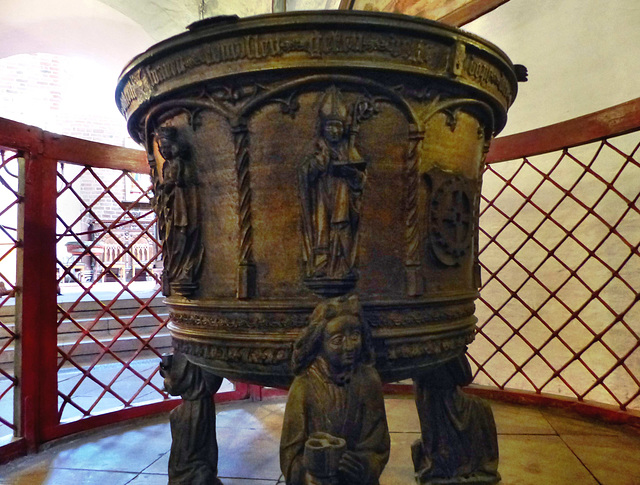Mölln - St. Nicolai
Schwerin - Dom
Schwerin - Dom
Schwerin - Dom
Schwerin - Dom
Schwerin - Dom
Schwerin - Dom
Schwerin - Dom
Schwerin - Zigarrenhaus Preussler
Dorf Mecklenburg - Dorfkirche
Dorf Mecklenburg - Dorfkirche
Wismar - Marienkirche
Wismar - Marienkirche
Wismar - Nikolaikirche
Wismar - Nikolaikirche
Wismar - Nikolaikirche
Wismar - Nikolaikirche
Wismar - Nikolaikirche
Wismar - Nikolaikirche
Wismar - Nikolaikirche
Wismar - Nikolaikirche
Wismar - Nikolaikirche
Wismar - Nikolaikirche
Mölln - St. Nicolai
Mölln - St. Nicolai
Mölln - St. Nicolai
Mölln - St. Nicolai
Mölln - St. Nicolai
Mölln - St. Nicolai
Mölln
Detmold - Sex toys
Detmold - Trout baits
Detmold - Maggots
Detmold - Gumball Machine
Lage - Markt
Lage - Marktkirche St. Johann
Nancy - Pharmacie du Point Central
Nancy - Rue Saint-Jean
Nancy - St-Léon IX
Dienville - Halles
Dienville - Saint-Quentin
Dienville - Saint-Quentin
Dienville - Saint-Quentin
Dienville - Saint-Quentin
Auxerre - ELÉGANZA
Location
See also...
Keywords
Authorizations, license
-
Visible by: Everyone -
All rights reserved
-
80 visits
Mölln - St. Nicolai


Mölln is a small town (pop. ~20.000) surrounded by lakes. It was founded in the 12th century by Knight Konrad Wackerbarth by resettling Slavic peasants into today's Old Mölln.
Around 1210, the settlement got the first fortifications. First time mentioned was the village 1188 in Barbarossa's privilege for Lübeck.
Mölln fell to Denmark in 1201 and was granted "Lübische Stadtrecht" (town charter) by King Waldemar II. 25 years later Mölln fell to the Duke of Saxe-Lauenburg in 1227. In 1230 Mölln was mentioned as the youngest parish in the Ratzeburg tithe register. The church, which was probably built around this time, was placed under the patrocinium of St. Nicholas.
Mölln was important due to the Old Salt Route, through which the salt produced in the salt mines of Lüneburg was shipped to the harbour of Lübeck. Although situated in the midst of the duchy of Lauenburg, the town was mortgaged to the Hanseatic town of Lübeck, which ruled Mölln from 1359 to 1683.
St. Nicolai, the parish church, is located on the highest point, overlooking the town and the seas around.
The construction started probably at the end of the 12th century.
The oldest parts can be attributed to the Brick Romanesque period, the south nave to the Brick Gothic period. The choir room was probably finished around 1217, when the Bishop of Ratzeburg held his first synod here.
In the 15th century, the church underwent alterations: in 1470/71, the south nave was extended and in 1497, the present baptistery and the sacristy were added.
The bronze baptismal font is signed and dated. It was cast by Peter Wulf in 1509. Peter Wulf worked in Lübeck between 1492 and 1527.
Around 1210, the settlement got the first fortifications. First time mentioned was the village 1188 in Barbarossa's privilege for Lübeck.
Mölln fell to Denmark in 1201 and was granted "Lübische Stadtrecht" (town charter) by King Waldemar II. 25 years later Mölln fell to the Duke of Saxe-Lauenburg in 1227. In 1230 Mölln was mentioned as the youngest parish in the Ratzeburg tithe register. The church, which was probably built around this time, was placed under the patrocinium of St. Nicholas.
Mölln was important due to the Old Salt Route, through which the salt produced in the salt mines of Lüneburg was shipped to the harbour of Lübeck. Although situated in the midst of the duchy of Lauenburg, the town was mortgaged to the Hanseatic town of Lübeck, which ruled Mölln from 1359 to 1683.
St. Nicolai, the parish church, is located on the highest point, overlooking the town and the seas around.
The construction started probably at the end of the 12th century.
The oldest parts can be attributed to the Brick Romanesque period, the south nave to the Brick Gothic period. The choir room was probably finished around 1217, when the Bishop of Ratzeburg held his first synod here.
In the 15th century, the church underwent alterations: in 1470/71, the south nave was extended and in 1497, the present baptistery and the sacristy were added.
The bronze baptismal font is signed and dated. It was cast by Peter Wulf in 1509. Peter Wulf worked in Lübeck between 1492 and 1527.
Marco F. Delminho, Paolo Tanino, Fred Fouarge have particularly liked this photo
- Keyboard shortcuts:
Jump to top
RSS feed- Latest comments - Subscribe to the comment feeds of this photo
- ipernity © 2007-2024
- Help & Contact
|
Club news
|
About ipernity
|
History |
ipernity Club & Prices |
Guide of good conduct
Donate | Group guidelines | Privacy policy | Terms of use | Statutes | In memoria -
Facebook
Twitter

Sign-in to write a comment.